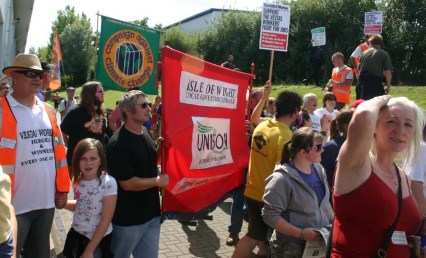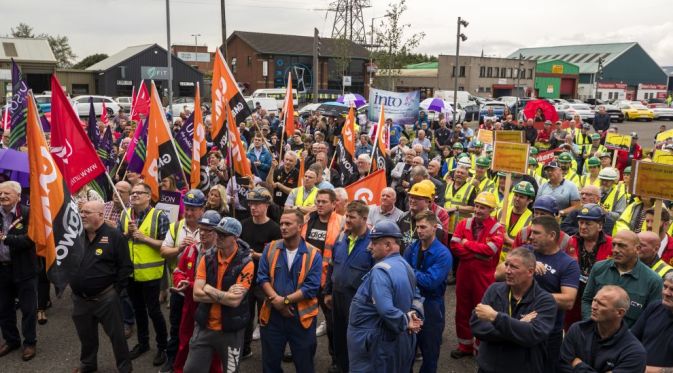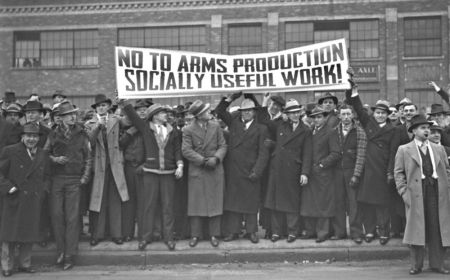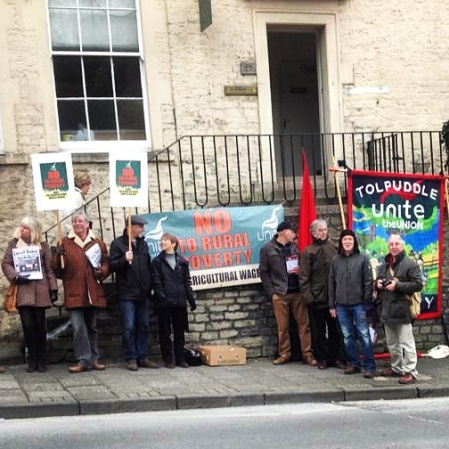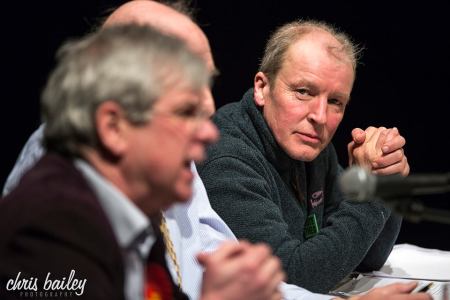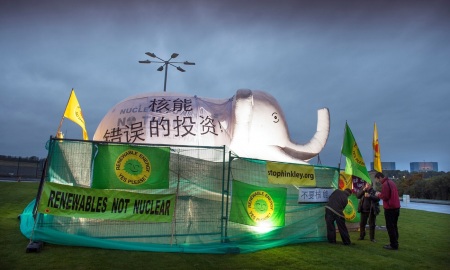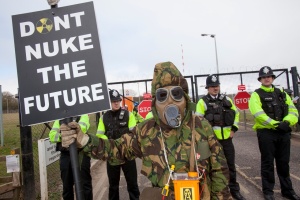Flamanville EPR: the four curses of a controversial site
Nov 19 2014 Le Monde (Translation)
– By Audrey Garric and Jean-Michel Bezat
http://www.lemonde.fr/economie/article/2014/11/19/epr-de-flamanville-les-quatre-maledictions-d-un-chantier-controverse_4526032_3234.html
The sky darkens even further above the Flamanville 3 site (Manche). After the announcement by EDF on Nov 18, of a new delay, its commencement is now expected in 2017, ten years after the start of work in 2007. And the bill – already overbudget – should slip higher. “The re-estimation of costs is ongoing. The costings will be announced in the coming months, “said EDF on Wednesday, November 19th.This delay, associated with many upsets at the site and the problems of equipment supplied by Areva, has pushed the cost of the project initially set at €3.3 billion to over €9 billion. These overruns will inevitably have an impact on electricity costs to consumers.
The case of Flamanville is similar to the Finnish Olkiluoto site also led by Areva, which is also accused of delays (nine years) and cost overruns that have nearly tripled since 2005.
The European Pressurized Reactor (EPR) is the showcase of the French nuclear industry, designed by Areva and Germany’s Siemens in the 1990s, and is expected to include significant improvements in terms of safety. When melting, the heart of the reactor – which occurred at the Fukushima plant in Japan in March 2011 – the highly radioactive magma could theoretically be trapped in a “corium spreading containment” . In addition, the EPR has four independent cooling circuits. And the cooling ponds for spent fuel should be protected by a containment. In the end, according to EDF, the risk of proliferation of radioactive materials would be virtually nil as external aggressions (earthquake, flood or fall of a jumbo jet). EDF also states that the Areva EPR will consume about 15% less fuel for the same output power, and produce 10% less long-lived radioactive waste. The reactor, with a capacity of 1650 megawatts (MW) against 1450 for the most powerful now), was designed to withstand internal and external accidents, says EDF and Areva.
However the EPR is becoming one of the most maligned nuclear technologies, and the most expensive one.
1. A calendar constantly postponed
The work was initiated in 2007 after the green light by the French government of Jean-Pierre Raffarin in 2004. EDF at the time had planned five years’ work and connection to the grid in 2012. Then, quickly, the deadline was extended to 2014. In 2011, this was extended to 2016. Since then, new problems on the site, and recent heavy equipment problems, such as the lid and elements of the steel vessel in which fission occurs, caused an EDF, “a shift in the planning of the site “with starting the reactors in 2017. EDF says this time the delays are due to Areva, not Bouygues and its subcontractors providing the civil engineering.
2. Costs multiplied by three
In 2005, the price of Flamanville 3 was originally estimated at €3.3 billion, as at Olkiluoto. In 2008, a year after the start of construction, the bill rose to over €4 billion: EDF said this was due to the need to take account of changes in the price of concrete and steel. During 2009 costs increased from €4 to €6.5 billion and in December 2012, EDF announced a further increase by €2 billion to €8.5 billion.
Do we stop here? Nothing is less certain, since “one year’s delay can cost €700 to 800 million euros ” according to a nuclear expert, partly because the cost of labour. During the most active periods, more than 3,600 workers, technicians and engineers daily enter the Normandy site, one of the largest worksites in Europe.
In 2012 the Court of Auditors (https://www.ccomptes.fr/Publications/Publications/Les-couts-de-la-filiere-electro-nucleaire) and in 2014 the French parliamentary commission of inquiry into the cost of nuclear power, headed by MP François Brottes (Parti Socialiste, Isère) stressed “a number of uncertainties” in the industry of the atom and expressed “concern” about the evolution of the costs of the industry in France (http://www3.reuters.fr/graphiques/Rapport_nucl%C3%A9aire.pdf)
3. Many manufacturing defects
Since the construction start of the EPR in December 2007, the Nuclear Safety Authority (ASN), which monitors the site twice a month, has raised hundreds of construction faults during inspection debriefings. The most recent were cracks in three areas of the concrete in reactor containment, which took three months to be repaired as indicated by EDF in June 2014, partially confirming a report in Le Canard Enchaîné which spoke of “holes 42 centimeters in size.” (http://www.lemoniteur.fr/137-energie/article/actualite/24662425-reacteur-epr-de-flamanville-nouvelles-malfacons-du-beton)
In 2013, the reactor dome was damaged by falling gear; in 2011 and 2012, the ASN pointed repeatedly to “defects” and “anomalies” in concreting, reinforcing and welding which could “prejudice the final quality of the structures.” There was talk of holes in concrete and honeycombs (areas lacking cement). The concrete reactor structure has even been suspended three times, the last for a year in 2012. The plan submitted for EDF was then deemed “satisfactory” by the ASN.
4. The problem of outsourcing
In 2011, ASN denounced “a lack of skills, a lack of training in safety culture” and ” gaps in EDF’s monitoring of subcontractors.” The shipyard employs up to 3,600 people, including 2,850 employees of EDF subcontracting companies. 19% of these subcontract employees are employed by foreign companies, of which more than 80% are Portuguese (about 600 people). The Flamanville EPR has also been the subject of preliminary investigations and trials after the accidental deaths of two workers in January and June 2011, and offences – work hidden and under-reporting of accidents – identified by ASN. http://www.lefigaro.fr/societes/2011/06/24/04015-20110624ARTFIG00348-accidents-sur-le-site-de-l-epr-bouygues-est-mis-en-cause.php
Last April, the French Criminal Court sentenced Cherbourg Bouygues Public Works, responsible for coordinating the security of civil engineering on site, to a fine of €75,000 and a crane operator to three months in prison for the accidental death of a 37 year old worker, in January 2011, who had fallen 15 meters: the bridge on which he was working had been hit by the crane.
As part of “hidden work”, the companies Bouygues and Atlanco Elco are now accused of illegally employing 460 Romanian and Polish workers. The trial has been postponed to March 2015, in order to find the Atlanco company in the interim. The search for this international company, which has not responded to the court summons, will now go through ” international agreements”, that is to say, French, Irish and Cypriot Ministries of Justice – the Atlanco seat being located in one of these countries.
by Audrey Garric. Journalist in the service of World Watch Planet
http://www.lemonde.fr/journaliste/audrey-garric/
Follow this reporter on Twitter https://twitter.com/audreygarric
and by Jean-Michel Bezat http://www.lemonde.fr/journaliste/jean-michel-bezat/
